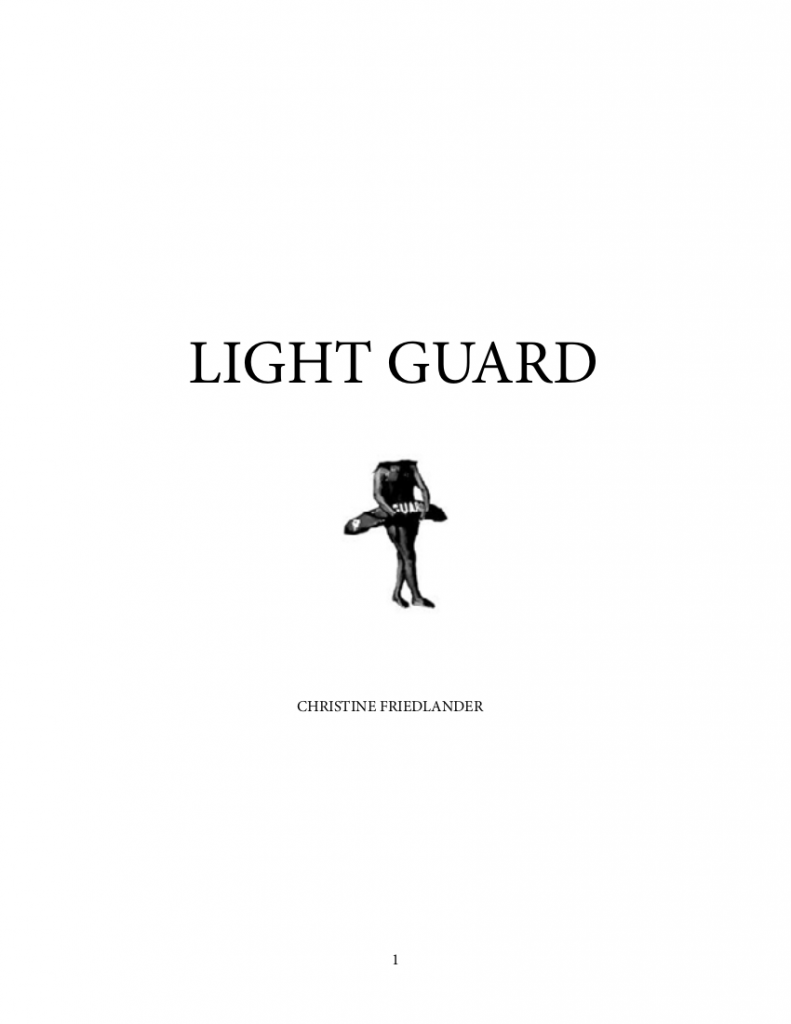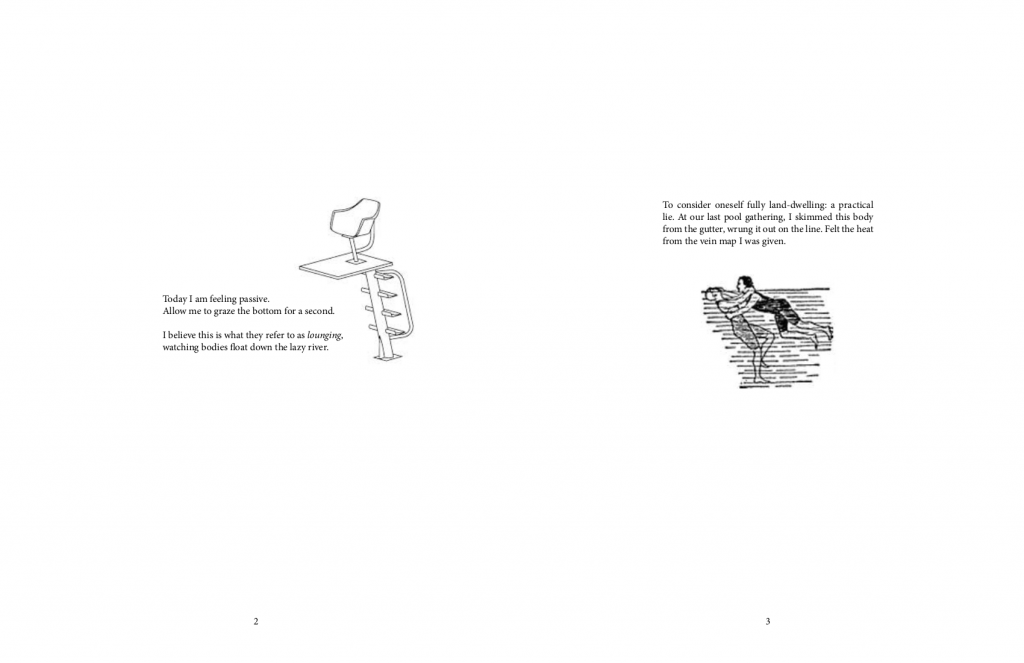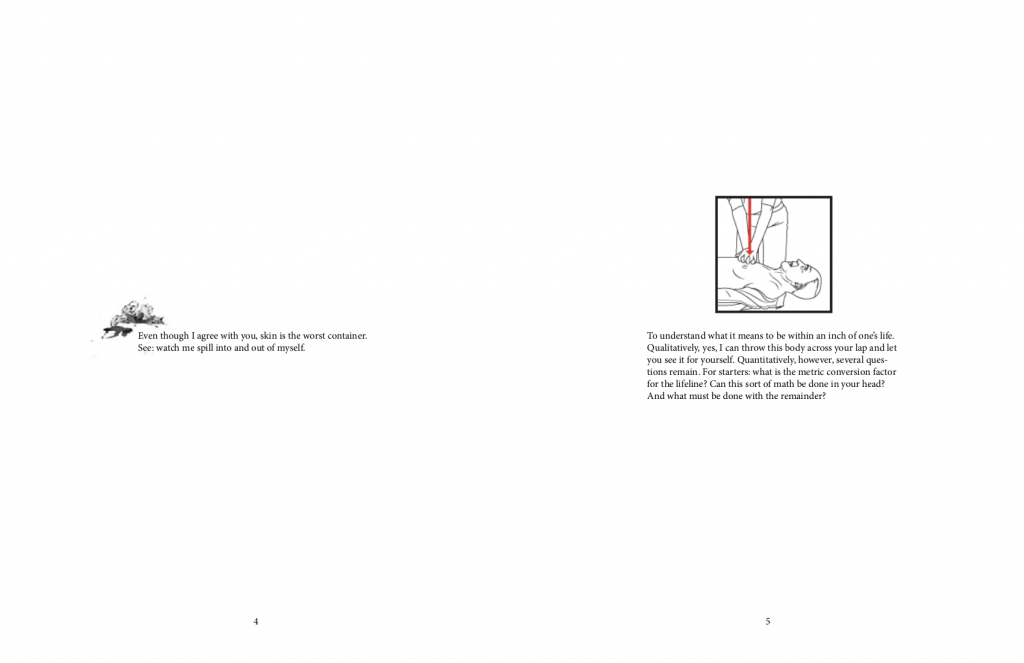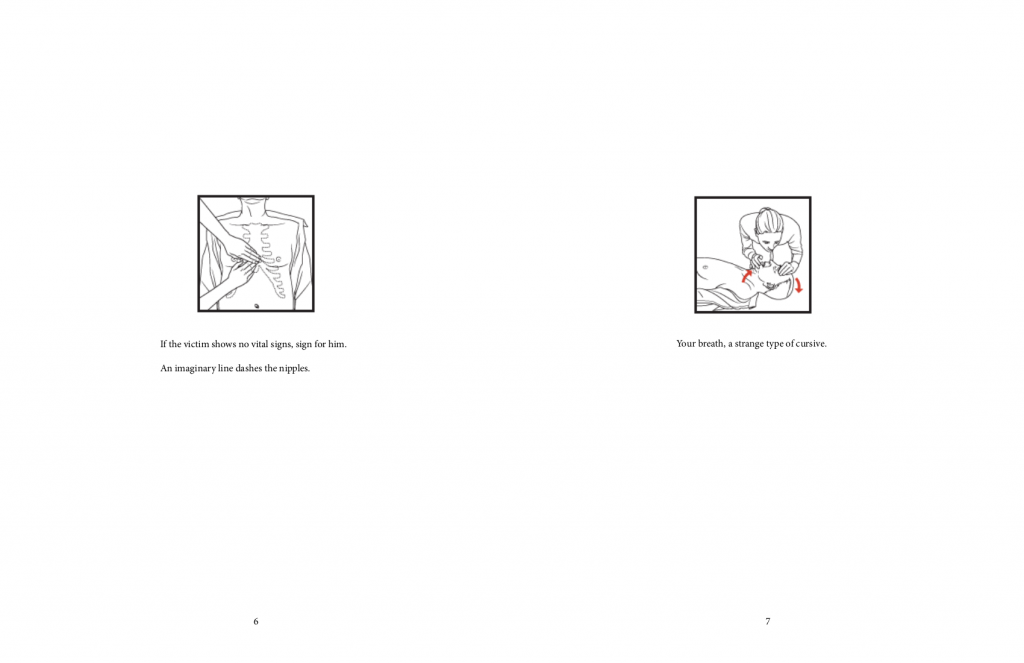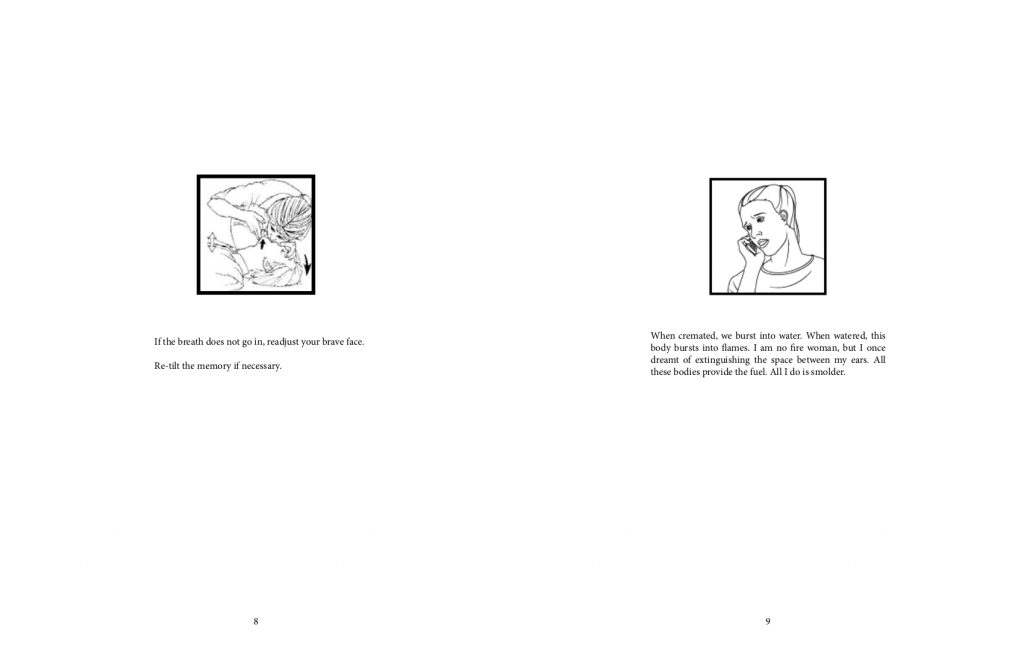O’Hare is a Circle of Hell
It is December in Chicago.
When I step off the train, there’s a palpable cold. The car pulls away, and all the air suddenly goes with it. I follow the other hollow-eyed travelers to the escalator; only small children and middle-aged women with something to prove take the stairs. When I get to the top, I dig out my paper boarding pass. I’ve never trusted the mobile ones. The few times I’ve used them, I end up killing my battery. The whole way through line, I’m terrified that the phone will die at the exact moment I reach the TSA officer, so I constantly tap the screen back to life whenever it goes black.
Terminal 4. I squint at the sign above me, which reads Terminals 1-2-3 5. I feel my eyebrows lock in a furrow that won’t be undone. Around me, bodies mutter and part. Somewhere, a busker is playing a dirge. Slowly, the number 4 starts to flicker in between three and five, a weak neon beacon. I follow where the arrow points.
I’ve only brought a single backpack, and I wonder if it looks suspicious. But I’m only traveling from Chicago to St. Louis—a mere 30 minute flight. Lesser beings would have driven, but when December in the Midwest is a choice between abject misery and utter misery, you take your chances. The security line snakes around to the accursed Spirit Airlines “service” desk. Bodies looking for human assistance and bodies waiting to be stripped of their shoes, hats, boots co-mingle. Three drug hounds patrol lethargically.
As soon as I get in line behind a family of four, I begin to strategize: Liquids, laptop, Kindle, shoes, coat. But over the course of an hour, which is how long it takes to get to the part of the line where this process begins, things start to go wrong. There’s so many people that more and more get shunted to the metal detector, which you think would make the line go faster. But it seems as though no matter which line I’m in, there’s an abundance of things that make it move more slowly: A man’s taken all off his coat and shoes even though he’s clearly over 80 and is slowly and painstakingly folding them to lay into a tray. A kid gets loose and runs through the backscatter machine, so it has to be recalibrated it several times. A TSA agent opens a bag and finds a forty of Mickey’s in it. “Sir,” he says without emotion, you have to toss this or drink it.” Without hesitation, the gentleman in question drinks half and throws the rest away.
When I finally get to the backscatter machine, I spread my feet and hold my hands up over my head as though I’m at a stop and frisk. “Higher,” the TSA agent says, and I raise my shoulders, feeling my t-shirt start to hover above my gut.
The agent beckons with a skeletal finger. I lower my arms and walk through, but he holds up a hand for me to wait. I should have put on more deodorant or at least used the stuff that says its made and tested in laboratories. The clinical smell would be fitting in this labyrinth of which I am but one rat waiting my turn to access the cheese cubes. After a few moments, he waves me through, several blessings be upon me. Other passengers are furiously pawing at items, as if everyone’s flight is in exactly ten minutes. I shoulder my backpack and gather my various detritus into my arms like babies. I redress myself, but I’ll never regain any sense of pride.
Where is terminal 4? I go from person to person to ask this question. I even Google “Ohare help” and manage to find some sort of hotline, but am told that there is no information for terminal 4.
“As in, it doesn’t exist?” I ask.
“As in, I can’t help you,” the operator says tersely, hanging up on me. By now, I’ve sweated straight through my Led Zeppelin tee, but I’m trapped inside winter apparel until I die of dehydration or get to my gate, whichever comes first.
“YOU ARE LOOKING FOR TERMINAL 4.” That voice. At once familiar, unnerving. Many decibels too loud, strained as though the speaker had never heard of an “inside voice” or at the very least, had always had to compete with a screaming crowd.
I turn to see a man—an 80s Adonis really, blonde hair teased out like a halo around his head. He wears a tank top tucked into tight stonewashed jeans. And he’s tan and glistening. So very tan and glistening. In addition to his strange appearance, the man has absolutely no luggage and no coat. I try not to stare at his nipples, erect from either cold or perhaps it is simply that his skin was too tight and muscly to contain itself.
“YOU ARE LOOKING FOR TERMINAL 4!” he yells again.
“Me?” I say like an idiot.
“I’LL TAKE YOU,” he says.
This seems strange, but I’ll
be honest reader—I am desperate. Before I arrived at O’Hare, which now seems to
be days ago, even years, I imagined what it would be like. Sure, the TSA lines
would be long, but once inside, I’d make my way to my gate with an hour to
spare, then order a coffee from Dunkin’ Donuts (1 cream, 1 sugar, perfectly
mixed by a machine designed to do exactly this), drink leisurely, take a PPP
(pre plane poop), and get back to the gate as they start to call for
passengers.
“FOLLOW ME,” orders my overly energetic guide.
I do as he says. He leads me past the Cinnabon, where the line stretches beyond what I can see. All the nearby tables are crowded with patrons who chomp the sweet buns mechanically one after another. We pass the lactation room where a crying woman is trying the door, which appears to be locked. She’s knocking, pressing her ear to the door, waiting. She walks away, circles back, and repeats these desperate motions. We walk past restaurants where people are eating expensive hot dogs and flavorless pizza that costs $25. A teenager almost runs me over as she walks briskly with her head down staring into her phone, then looks up desperately. She’s searching for an outlet that will never appear. As we pass the Sunglass Hut, an older woman is trying out one pair of glasses after another, never satisfied by what she sees in the tiny mirror she has to squat to look into. She can’t find the right pair even though her flight to Florida is in an hour and she needs to, at all costs, protect her eyeballs.
My guide notices me watching these events and says, “DO NOT TRY TO REASON WHY. THERE IS NO HOPE FOR THEM. WE WALK. I NEED FUEL.”
My brisk walk turns into a gallop to keep up with him.
We stop at a Starbucks. The sea of people part before my oiled-up guide. I attempt to meet their eyes in apology, but they are shriveling away from us like the sad seaweed people in The Little Mermaid as Ursula’s shadow passes over them.
“MACCHIATO. CARAMEL” my guide booms at the barista who honestly doesn’t seem shaken. Maybe he’s used to the ever replenishing supply of weirdos here.
“Name,” the barista asks holding a sharpie over the cup.
My guide replies, “I, HULK HOGAN, AM THE ONLY ONE.”
“Pick it up over there,” the barista says.
Later, a voice calls out “caramel macchiato for Hoke!” My guide picks up his drink, inhales the steam deeply, and booms, “SMELL IT, WARRIORS.” I honestly can’t say who he’s talking to, but I realize we still haven’t made it to Terminal 4. He seems to sense my unease and places his giant hand on my shoulder like a lead weight. “THANK YOUR CREATOR, LITTLE SQUID, WE ARE NOW GOING TO TERMINAL 4.”
Minutes later, we round a corner. The lights are flickering in this hallway like a David Lynch movie. It seems relatively abandoned for O’Hare’s usual bustle. We’ve run out of restaurants: A solitary Quizno’s sits at the entrance to Terminal 4. Years of neglect have not been kind to this forlorn sandwichery: Faded etchings depicting demonic hamster-men decorate the walls. The stench of roasted porcine flesh fills the air. This terminal seems oddly narrow: A series of dark arcades. A wall monitor comes into view: Abandon all hope, you who enter here. My guide shouts, “WE ARE ABOUT TO ENTER PARTS UNKNOWN.”
Although we have entered the place that I had thought was my destination, the feelings of loss and despair do not leave. And my glistening guide shows no signs of ending his guidance. He keeps striding along into the terminal with purpose. And so I follow him into the darkened hallway. When he finishes his drink, he crumples the paper cup, arm veins bulging, and throws it to the ground.
“Hey,” I start, about to scold him for littering, but the cup rolls toward the wall and disappears into some black, endless abyss that swallows his transgression.
He sees me staring and shrugs – at least, I think he does, for it is impossible to distinguish his shoulders from his neck. “I HAVE ACCEPTED MY FATE, TRAVELER, WHAT ABOUT YOU? HAVE YOU ACCEPTED YOUR FATE?”
What had the fates dealt me? It is then that I do start to smell it (Warriors). I taste it—that hunger for a $30 sandwich gnawing at my bones, but I feel I must press on. I turn back to look behind us, but my guide grabs my arm with his tyrannical grip. “YOU SEE NOTHING,” he simply states. Existentially, the words stung. But he was right. If there was anything back there at all, it was only endless bathroom lines, drinking fountains whose filters were always on red alert and needing to be changed by a night janitor who never appears. Indeed, there is no greater sorrow than to recall our times of joy in wretchedness.
Although the journey here had been harrowing, nothing prepares me for the sights of terminal 4. As I follow on the heels of my steroidal guide, things start to look more familiar, but uncannily so. There are now gates on either side of us, but I shudder looking upon those waiting there. A group of ragged travelers have built a trash can fire to keep themselves warm, but the sprinkler system periodically erupts to extinguish the flames, so they continually throw items out from their carry-ons to stoke it back to life. “Why don’t they just move the trashcan?” I ask my guide, watching the Sisyphean scene.
“THE SCREEN,” he yells, pointing to the flight status monitor, which shows that the flight has been delayed five hours, but continuously updates to say it will only be five minutes more. I now understand that they cannot move for fear that their flight will leave without them. So, they huddle together in their misery forever.
Over the loudspeaker, Styx’s Come Sail Away plays. My guide tenses, and I wonder if he too has always thought that Styx was too hardcore of a name to be responsible for such a lively song celebrating the following of one’s dreams. Perhaps this infernal dichotomy is why the song has been banished to Terminal 4 and karaoke bars. At the next gate, I see a man watching advertisement after advertisement waiting to use the free wifi. Each ad is increasingly more annoying. The man starts to sing jingles to himself, occasionally letting loose a maniacal laugh, his eyes never leaving his laptop screen.
We pass by the chair massage place where the cries of passengers rise up in an opera of pain (I assume because their 30 min massages are $100), children with soot on their cheeks chew on the foliage of decorative plants. I look at my boarding pass, crumpled in my hand and damp with sweat. Gate X8. I am here. I look up at my guide, who begins to launch into a speech as though he has a camera trained upon him. He begins with a loud and vigorous snort. “AS YOU TRAVEL BY CONVENTIONAL MEANS, THE NORMALS YOU TRAVEL WITH EXPERIENCE MALFUNCTIONS. ALL THAT IS LEFT IS TOTAL SELF-DESTRUCTION…”
I stop listening. My stomach is growling like a hellbeast, and I want nothing more than to get on the plane and eat my pittance of dry pretzels or, if I am blessed, speculoos cookies. Will I leave limbo today? The worker behind the desk wears the navy blue of American Airlines, the scarf around her neck a river of deep red. She picks up the intercom and puts it to her mouth. My own mouth is dry; I am neither dead nor living. I am in some kind of eternity. Praise be upon Group 9, I silently pray, those behind families with small children, active military, and those of the endless large carry-on. May we again behold the stars.
Photography by Sumner McMurtry
Troubled Dogs
will we have time for our hands
to roam wherever they need?
along night air and balcony railings,
damp noses sniffing the air for intruders,
mayflies whispering against the knuckle of your
ring finger for three quarters
of a second
we remember the freedom of being strays,
how loneliness stays as ticks and fleas.
we can’t outrun good intentions.
someone is always a phone call
away from what they call
our salvation
if i had an insect’s body
i would whisper with my wings
like a dog whistle that only you can hear,
telling you we have to leave this place.
but as it is, we fill these canine back
alley corners better than anyone else
we are dogs feeding
from the same bowl. you growl,
i whine. our teeth are our defense.
if we are chained, we will be loud about it.
snapping teeth. bristled backs. we have
no other options
we want to be found. we don’t want
to be found. if chains are gone
then we will have the memory of chains.
if hands are the reason for chains,
we will break hands
and remember them as fists
we stand in the rain
of our own frightened smell,
keys rumbling in our bellies.
troubled dogs will always belong
to their original masters.
Metaphor for Lilies (Covid 19)
if it wasn’t for the old ones,
we’d be dancing through this sickness
with zinfandel wine and stacks
of rice, beans, coffee, milk,
all the necessities to survive
isolation
while making a cup of coffee i wonder
if our grandmothers will die before we are able
to buy them any more flowers.
every Easter my mother gives Grandmama
white lilies, which could represent doves, signs
of salvation, or any kind of metaphorical bullshit.
i’ll add my own metaphor: my grandmother’s face,
planted in soil. three lily faces are sleeping
inside a plastic pot
first face: she stands in blue skirt and white blouse,
brown curls gripping cheeks younger
than mine are now. did the photographer
add that pink blush to her cheeks?
does she know what is coming?
second face: she stands against the background
of dark kitchen cabinets, wearing the same kind
of white blouse but her hair isn’t brown anymore,
graying against the whole-body fever
blush of her skin in middle age.
can she feel the sickness creeping closer?
third face: she wears a pink jacket over the white blouse
and holds a birthday present, peering past pale tissue paper
because she can’t remember that she already
opened this one, so she will reopen
the truth of the future and keep
forgetting it
I wonder if she knows
that we have kept away because we love–
isn’t that the way it goes? we keep away
from what we love to keep it safe?
I bought an orchid and watched it slowly wither,
turning black, first the flowers, then the leaves,
as it sputtered dead on the kitchen stove
I’ll go to the edge
of my grandmother’s driveway, waiting
until it’s safe to see the lilies again, withered,
but still hanging on, reaching
their petals toward my waiting body
from behind the screen door,
that lonely picture frame
Snapper Hooks
Cracking backwards
through moss dollop pools,
heeding the push from
undercurrents and trapped air,
my father dips at the waist.
Sun rays, how they pass through water,
how they drag a brush over
a turtle’s shell and paint algae in ribbons
on the scutes of a stranger
my father lifts to show me.
Every turtle a snapping turtle –
carnivores, “spiked sons-a-bitches”
edged mob bosses of Shutes Branch,
pierced skin and porous sag –
my father cradles pliers.
As humidity threatens to collapse
over the bridge,
inching towards ragged carapaces
and wordless carp,
my father allows his wrist to twitch.


